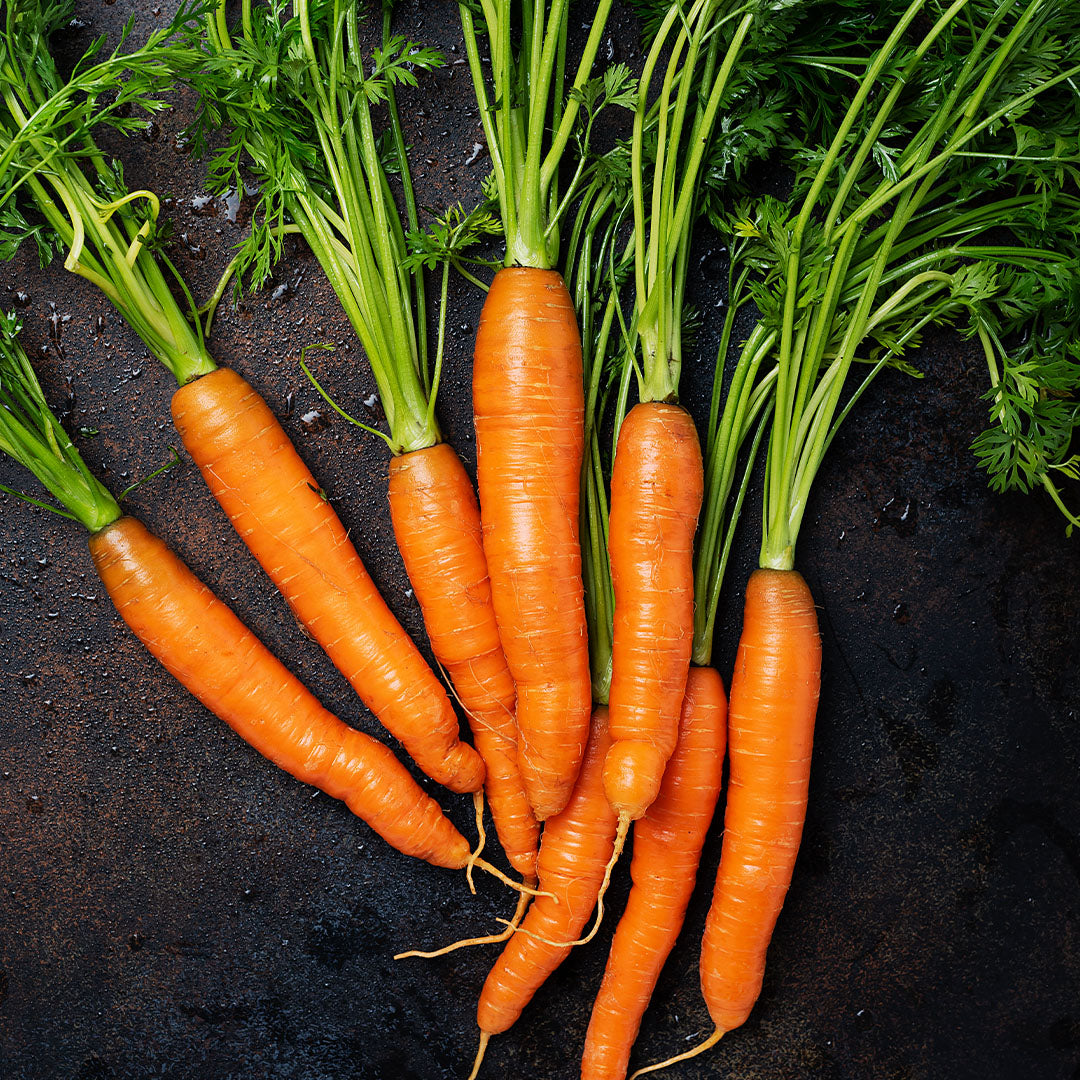Carrot (Daucus carota)
Back to ingredients
From: Europe, Southwestern Asia
Form: Extract, Powder
Food source: Carrots
Benefits of Carrots
- Vision health
- Gut health
What are Carrots?
Everyone knows that carrots are good for you and at the centre of this is that they are absolutely packed with nutrients, vitamins and antioxidants, that all work to benefit your body in a variety of ways.
Plants contain red, orange and yellow pigments called ‘carotenoids’ that give them their colours. One type of carotenoid is ‘carotenes’, which give vegetables like carrots and pumpkins their distinctive colouring. These carotenes act as antioxidants, fixing and neutralising ‘free radicals’ (unstable molecules) that cause a range of health problems. Carotenoids such as those found in carrots help keep levels of free radicals manageable, protecting your body and eyes from environmental stresses and the onset of conditions such as age-related macular degeneration. You may also enjoy reading ‘Tips for better eye health’ and ‘7 key nutrients to support your eye health’.
Carotenes are converted to Vitamin A in the body which is very important for healthy eyes. Vitamin A helps to convert the light that hits your eye into an electrical signal that goes to your brain. Consuming healthy levels of Vitamin A among other nutrients and vitamins such as Vitamin E and carotenoids helps to protect against a range of ocular diseases and maintains your vision.
Carrot fibre is a naturally superb source of plant compounds, including phytonutrients and carotenoids, and is a rich source of soluble and insoluble fibre. The dietary fibre constituents in carrots are thought to be cellulose, hemicellulose, pectin and lignin. Soluble and insoluble fibres play essential roles in maintaining overall health and a well-balanced diet. A combination of these fibres ensures optimal digestive function, heart health and weight management.










